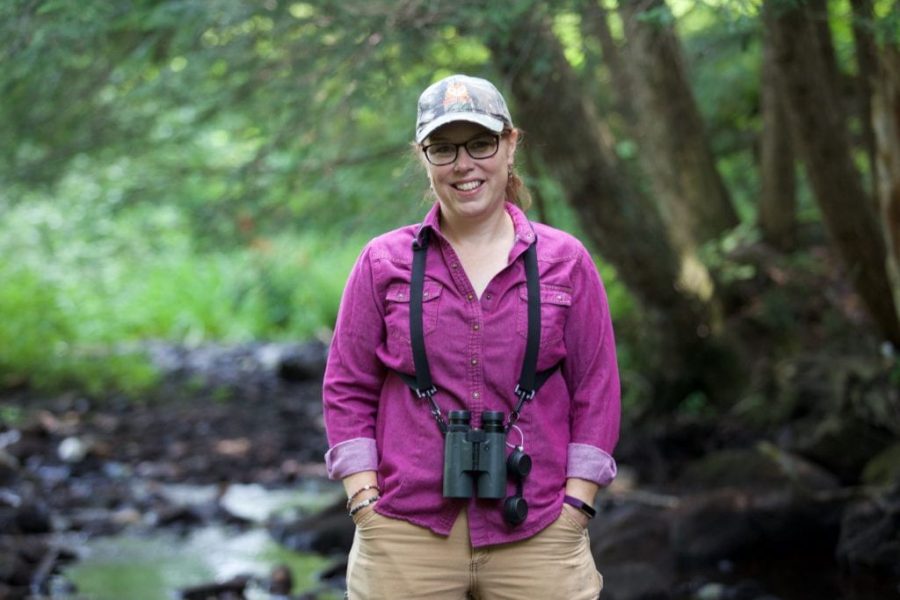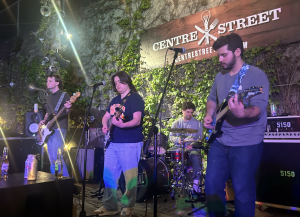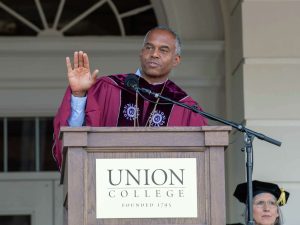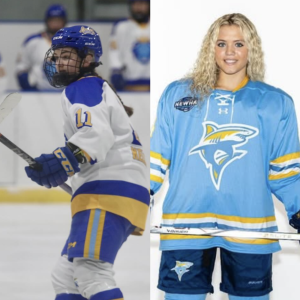Slow Birding with the Bird Diva
April 14, 2022
At 5:30PM, April 8, 2022, “Bird Diva” Bridget Butler spoke in Reamer Auditorium on the benefits of “Slow Birding” compared to traditional birding, in an event sponsored by Ornithology Club and The Kelly Adirondack Center. Butler described slow birding as birding “where you’re at”, in which one observes birds with less pursuit, and “more time spent in the moment with whatever it is in front of you”. This requires a “deeper skill set”, “calm connection” with nature, “connection with place” and interest in “wellness”, according to Butler.
Butler discussed her background in birding and work for the National Audobon Society, as well as her disillusionment with established professionals during her work in Cape Cod. She described ornithologists there as gatekeeping in a way that caused an “obnoxious” work environment. Butler also pointed to ornithology’s male-dominated history, and spoke on the history of women in the field, such as Florence Merriam Bailey, Harriet Mann Miller (occasional pen name: Olive Thorne Miller) and Mabel Osgood Wright.
Butler also realized at the time that she “didn’t really value the drive and chase” of ordinary birdwatching, and began to reassess what she wanted out of the field. She recalled the first time she did a “sit stop”, in Maine wetland with bird language expert Dan Gardoqui. The group was spread out and left alone for 45 minutes, instructed to quietly journal and observe birds. When the group reconvened, Butler said, her whole body shook, and she began to cry. It was the first time during birding that she had “permission to slow down, let go” and “do nothing but observe and be in nature.”
Butler then presented key tips for slow birding: birding locally, possibly in your immediate area, such as your backyard; keeping track of birds that frequent your area; paying attention to how those birds and other wildlife use the land and how both change with the seasons; and observing birds beyond only noting their species. She recalled a particularly rewarding experience while mentoring a student in Colchester Pond, Vermont, in which they patiently observed cowbirds long enough to catch their courtship display. She pointed out that if she and the student were only concerned with identifying species, they would have missed the display. In making the best use of a sit spot for one’s birding, Butler recommended getting close to birds, waiting for them at least 20 minutes, taking notes, and going often; the most common birds around her home in Queens currently are the Song Sparrow, European Starling, Northern Cardinal and Black-Capped Chickadee.
In identifying birds, Butler pointed out for prospective birders that the plumage of some birds changes depending on the season, and that one should learn to identifying birds by their shapes independent of color. Butler added that identifying birds by sound is a key skill as well, and that birders should become acquainted with the soundscape around their sit spot, and learn to isolate and describe sounds. Butler also mentioned technological aids in birding, referencing eBird, the app from The Cornell Lab of Ornithology, which can identify birds by their calls, providing spectrograms, and histograms of sighting frequencies in different areas. Butler herself then demonstrated an accurate impression of a barn owl’s hoot.
In the following Q-&-A segment, Butler encouraged local birding trips, and was asked multiple questions regarding conservation. She answered that one can create a better environment for birds by encouraging foods native to the area, citing the importance of caterpillars in providing protein for chicks and that birdfeeders generally make up a small amound of a bird’s diet. She added that availability of water is important. For conservation in urban areas, such as Schenectady, Butler stated the importance of cultivating the landscape “in a friendly way” to birds. She ended with an anecdote about her recent discovery of ravens nesting in the eaves of her local historical society, and said she would be calling the society to ensure the birds’ protection.
A list of Butler’s book and reading recommendations from her talk can be found at https://muse.union.edu/adirondack/2022/03/07/slow-birding-reimagining-our-connection-with-birds/.







